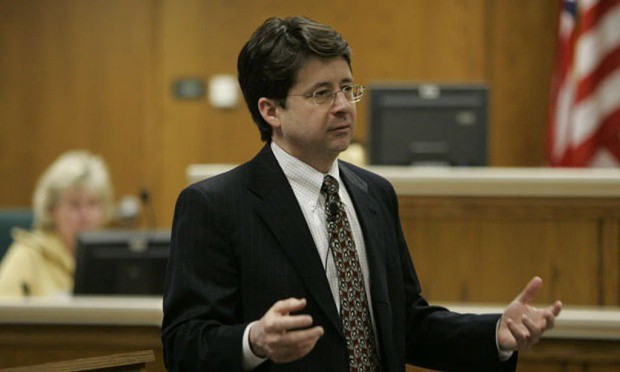Is Law Really More Disappointing Than Other Professions?
“No industry breeds more misery, boredom, and regret than private law”

Are you not just unhappy, but particularly and vocally unhappy, with your profession? Do you resent both the macro and micro aspects of your day-to-day existence, even though your income is several times the national average? And do you find your dissatisfaction well-reflected in the media?
You may be a lawyer.
Lots of people are less than thrilled with how their careers develop in their twenties and thirties, but there’s something unique both about the despair of lawyers and how thoroughly the media covers that despair. They’re so minutely observed and documented these days that attorneys may as well be Kardashians. Is law really so much more disappointing than every other profession? According to the media, yes.
The latest aria in the ongoing opera called Law: A Tragedy can be found today in Slate, and it’s a doozy:
lawyers who consider leaving the law face plenty of psychological and societal obstacles. No one wants to feel they’ve wasted years pursuing an unfulfilling career, and lawyers are burdened with especially heavy sunk costs: After spending three years and tens or hundreds of thousands of dollars on law school, plus several grueling months preparing for the bar exam, they can feel like it’s too late to change their minds. Admitting that you got such a big — and expensive — decision wrong is not easy. …
As Alvey and Brown’s experiences go to show, one career option for disgruntled lawyers is to become a consultant, coach, or counselor specializing in helping other lawyers figure out second careers. There are other options, too. In her book, Brown profiles J.D.s who’ve gone on to become a university president, an artist and designer, a therapist, a public policy advisor, a baker, a journalist, an acupuncturist, a rabbi, and the founder of “an expanding empire of chocolate walking tour companies.” It is literally true that you can do anything with a law degree — as long as you’re comfortable with the fact that you could have done the same thing without a law degree.
Writer L.V. Anderson flatly declares, “there may be no industry that breeds more misery, boredom, and regret than private law.” There are good reasons for that. The starry-eyed kids who begin their 1L years expect to be Perry Mason or Thurgood Marshall — especially since they’re the kids who’ve been told their whole lives that they’re Smart, Impressive, Going Places — and end up instead being some nameless nobody paper-pusher tallying up their billable hours. That’s if they’re lucky enough to get a job at all.
They wanted more. What’s worse, they felt entitled to more. But more is not what they got.
That’s rough! As we know, unhappiness = the distance between what you expect and what you receive; or, even more simply, unhappiness = expectations. So yeah, law can be a real let down.
But, at this point, can anyone really claim to be surprised? I’m reminded of a girl I went to high school with who got accepted to, and attended, Barnard College, a small liberal arts college for women in New York. Someone asked her how she liked it after her first year, and she said, “It’s good! But you know, it’s small. There’s no campus. And there are so many girls.”
Like, talk about things you should have known in advance.
That law as a field is very often disappointing is a point that has been made ad infinitum. It’s been made ad infinitum on Slate.com alone! Why are journalists so obsessed with this story? Maybe it’s because journalists are the sort of people who feel that they could have gone to law school. A woman in Anderson’s most recent piece says she became an attorney because she liked to write, and think, and argue. People who meet those same criteria often end up as reporters, where they are also disappointed a lot of the time and poorly paid to boot.
I guess reporters want to keep reassuring themselves that they made the right choice by opting for this unstable, overcrowded profession rather than that one — even though that one might have at least made them rich.
Support The Billfold
The Billfold continues to exist thanks to support from our readers. Help us continue to do our work by making a monthly pledge on Patreon or a one-time-only contribution through PayPal.
Comments